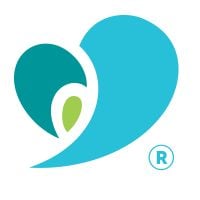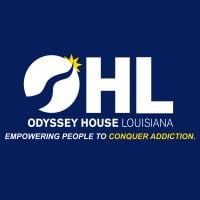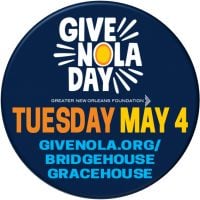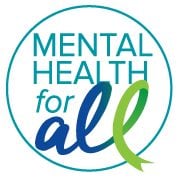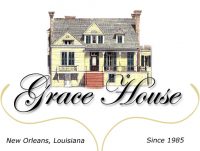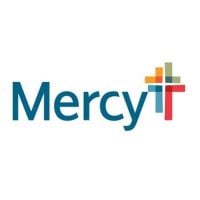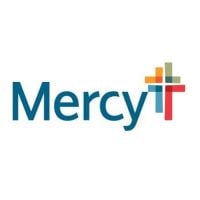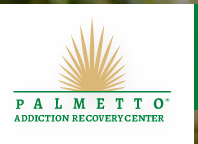University Medical Center of New Orleans - HIV Outpatient Program
Drug Rehab Center in New Orleans, Louisiana
University Medical Center of New Orleans is a leading provider of outpatient HIV care in New Orleans, offering comprehensive services and treatment plans for HIV positive individuals and their families, including evidence-based care for substance use and abuse disorders, as well as a specialized program for HIV positive transgender individuals.
About This Louisiana Facility
The University Medical Center of New Orleans - HIV Outpatient Program provides comprehensive and comprehensive care for people living with HIV. UMC-NO is the only hospital in the region to provide dedicated, quality HIV care, and their outpatient program focuses on HIV prevention, management, and treatment for people who have already tested positive. Their program offers a comprehensive range of services, from pre-testing to long-term clinical care, including psychological and social support to help those living with HIV to live happy, productive lives. UMC-NO offers medication adherence services, prevention services, medical home care services, and comprehensive laboratory and diagnostic services.
The UMC-NO HIV Outpatient Program also provides a variety of addiction and substance abuse services for those living with HIV. They offer evaluation and diagnostic services, an intensive outpatient program, psychosocial services, medication assisted treatment, and peer support groups. UMC-NO is accredited by the Joint Commission, and their addiction and substance abuse services are licensed by the Louisiana Department of Health and Hospitals. They are committed to providing high-quality, culturally sensitive care to those living with HIV/AIDS in New Orleans.
Genders
Ages
Modality
Additional
Conditions and Issues Treated
There are different kinds of Dual Diagnosis:. A person who simultaneously experiences both a mental illness and an addiction disorder. Or, a person who experiences one or more coexisting (simultaneous) mental health conditions in addition to a primary substance use disorder.
The treatment requires a multi-disciplinary approach, it’s crucial for individuals to partner up with a healthcare provider who understands all the recovery components.
Levels of Care Offered at University Medical Center of New Orleans - HIV Outpatient Program
This center offers a variety of custom treatment tailored to individual recovery. Currently available are Dual-Diagnosis, Inpatient, Outpatient, with additional therapies available as listed below.
Inpatient treatment is the most intensive level of care, and it’s necessary for those who aren’t able to control their addiction. These patients also must be drug-free before attending inpatient programs .
During inpatient treatment, addicts live at an inpatient facility 24 hours a day while receiving help. This type of program is generally recommended for those who need to go through detoxification or who are struggling with serious addiction-related issues.
The outpatient programs in New Orleans, LA are for those addicted drugs or alcohol. The goal of the outpatient rehabilitation program is to make them stop abusing drugs or alcohol, reduce drug use or addictive behaviors, and become entirely sober. It is generally required to attend the outpatient program for 10-12 hours every week.
Patients can be administered on-the-spot medication to ease withdrawal symptoms such as anxiety, increased heart rate, and even depression. Groups such as Alcoholics Anonymous (AA) and Narcotics Anonymous (NA) can be used as a part of outpatient treatment to help maintain sobriety.
Therapies & Programs
People in addiction recovery can benefit from individual therapy. This type of therapy involves meeting with a therapist one-on-one. This allows for a personal and trusting relationship to be built so that the patient can be truly themselves and express any emotions they feel. Individual therapy leads to greater understanding and peace about your triggers for addiction and coping strategies to prevent relapse.
Couples therapy for drug addiction is based on the belief that addiction is a family disease. Everyone involved with an addict, not just the addict themselves, is affected by their behavior and the changes the addict goes through. The relationship also changes the addict’s significant other and has likely picked up some codependent behaviors. Codependency is a term used to describe a person obsessed with another person and their needs and feelings while neglecting their own. Addicts are usually people-pleasers, so it is understandable how one can become codependent in relationships with addicts.
Family therapy is a type of group problem-solving that aims to improve communication and relationships between the patient, their family, and sometimes friends. The main goal of family therapy for drug addiction is to create an environment where communication can occur without judgment, hostility, or blame. The therapist is with the family as they learn to communicate with each other differently, especially with the addict when s/he is using.
Group therapy sessions are held in rehab facilities, clinics, churches or community centers that offer drug addiction treatment. People who attend these groups are encouraged to voice their feelings and support other addicts in recovery. This helps group members strengthen their own recovery program while cheering on others who are struggling with sobriety.
Group therapy sessions provide recovering addicts with a chance to cope with everyday situations that many face. Group therapy sessions are held in rehab facilities, clinics, churches or community centers that offer drug addiction treatment.
People who attend these groups are encouraged to voice their feelings and support other addicts in recovery. This helps group members strengthen their own recovery program while cheering on others who are struggling with sobriety.
Dialectical Behavior Therapy (DBT) is a form of cognitive-behavioral therapy that helps people understand how they connect their thoughts, behaviors, and feelings. It can give them more control over their actions, effectively stopping self-harm ideations and attempts in some patients. It also helps put those with borderline personality disorder into control for managing mental struggles.
A new study has shown that DBT works for those with self-harm behaviors and addictions by giving them therapy they can relate to and understand.
Cognitive Behavioral Therapy (CBT) helps addicts identify faulty, negative thinking so that they can work together with the therapist to find healthier ways of thinking. CBT focuses on specific aspects of each person’s thinking, feeling, physiology, and behavior. It aims to identify specific problems in these areas, and create a personalized treatment strategy.
Addicts often experience intense cravings for sugary foods during recovery. By teaching addicts how to eat well and stay healthy, therapists can help them manage their cravings over the course of treatment.
During these sessions, New Orleans, Louisiana dietitians and therapists will offer advice about healthy eating options and teach addicts how to make specific changes in their diet that can help reduce the effects of cravings during recovery.This type of therapy is often used in conjunction with other types of addiction treatment services. By identifying specific triggers and developing strategies to help addicts avoid relapse, most individuals can overcome their cravings and stay sober for good after they finish rehab.
The first step to becoming a non-smoker is the choice to quit smoking. Nicotine replacement therapies are effective because they provide you with the nicotine you are addicted to without inhaling carcinogens from cigarettes.
There are several types of NRT. These include:
- Nicotine gum
- Nicotine patches (transdermal systems)
- Nasal spray
- Lozenges
The benefits to using NRT can include:
- Reduce the risk of heart disease and cancer
- Reduce the anxiety and irritability associated with quitting smoking
- Reduce the risk of type II diabetes.
- Improved fertility in women
Patient Experience
Experiential Therapy at University Medical Center of New Orleans - HIV Outpatient Program
Experiential Therapy allows addicts to release emotions in a safe environment. The process involves addicts painting their feelings and releasing them on a canvas. LPE – Love, Peace, and Equilibrium is one of the most popular forms of experiential therapy.
Payment Options Accepted
For specific insurance or payment methods please contact us.
Is your insurance accepted?
Ask an expert, call (888) 674-0062
University Medical Center Associated Centers
Discover treatment facilities under the same provider.
Learn More About University Medical Center Centers
Additional Details
Specifics, location, and helpful extra information.
New Orleans, Louisiana 70112 Phone Number(504) 702-5700 Meta DetailsUpdated November 25, 2023
Staff Verified
Patient Reviews
There are no reviews yet. Be the first one to write one.
New Orleans, Louisiana Addiction Information
Louisiana is one of the top ten states in the nation for opioid-related deaths. One in ten high school students admits to regularly using prescription opioids for non-medical purposes. More than 225,000 Louisiana residents admit to regular heavy drinking and around 6% of the Louisiana population abuses alcohol. Marijuana use in Louisiana is most common amongst teenagers between the ages of 12 and 17 years old.
Drug addiction and abuse can greatly impact the community in New Orleans. 115 people die from an opioid overdose every day. Families are torn apart, friends are lost, and lives are forever changed due to drugs. Treatment centers in New Orleans generally follow the 12-step model of recovery, which includes steps such as admitting powerlessness over the addiction, making amends for past wrongs, and helping others who are still struggling.
Treatment in Nearby Cities
- Clinton, LA (83.8 mi.)
- Jonesville, LA (154.7 mi.)
- Crowley, LA (138.4 mi.)
- Charenton, LA (86.7 mi.)
- Donaldsonville, LA (55.4 mi.)
Centers near University Medical Center of New Orleans - HIV Outpatient Program
The facility name, logo and brand are the property and registered trademarks of University Medical Center of New Orleans - HIV Outpatient Program, and are being used for identification and informational purposes only. Use of these names, logos and brands shall not imply endorsement. RehabNow.org is not affiliated with or sponsored by University Medical Center of New Orleans - HIV Outpatient Program.
